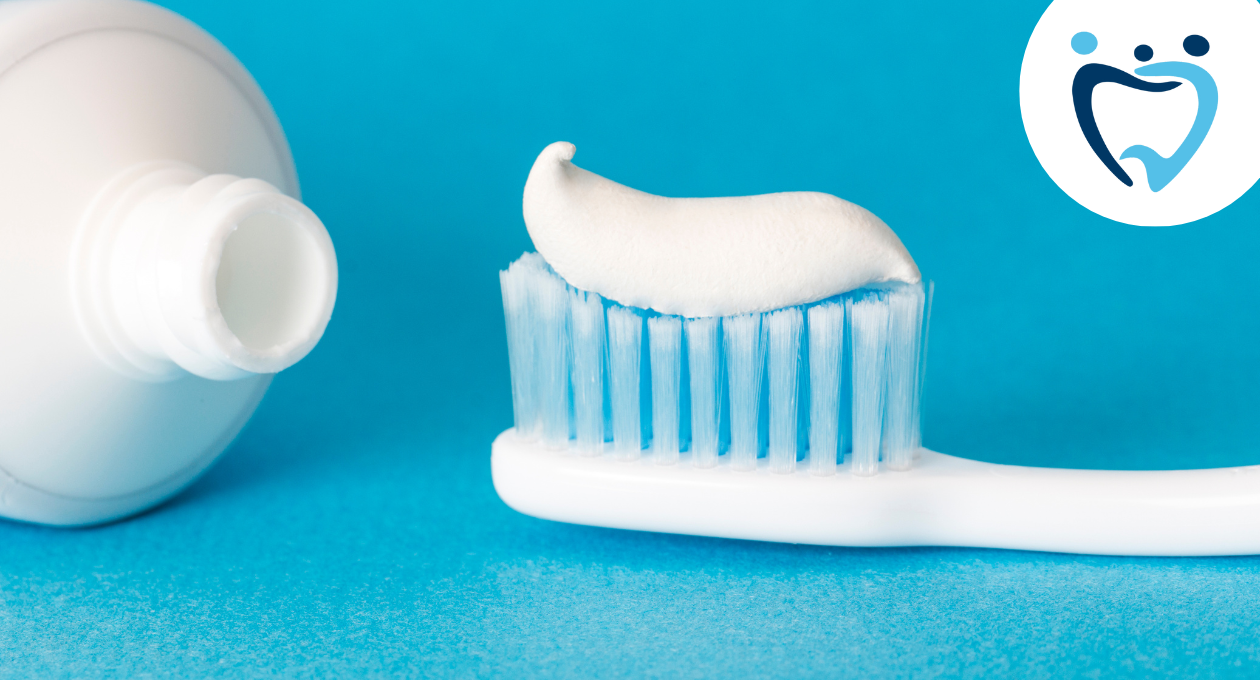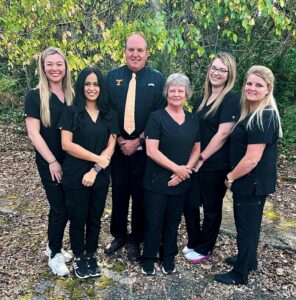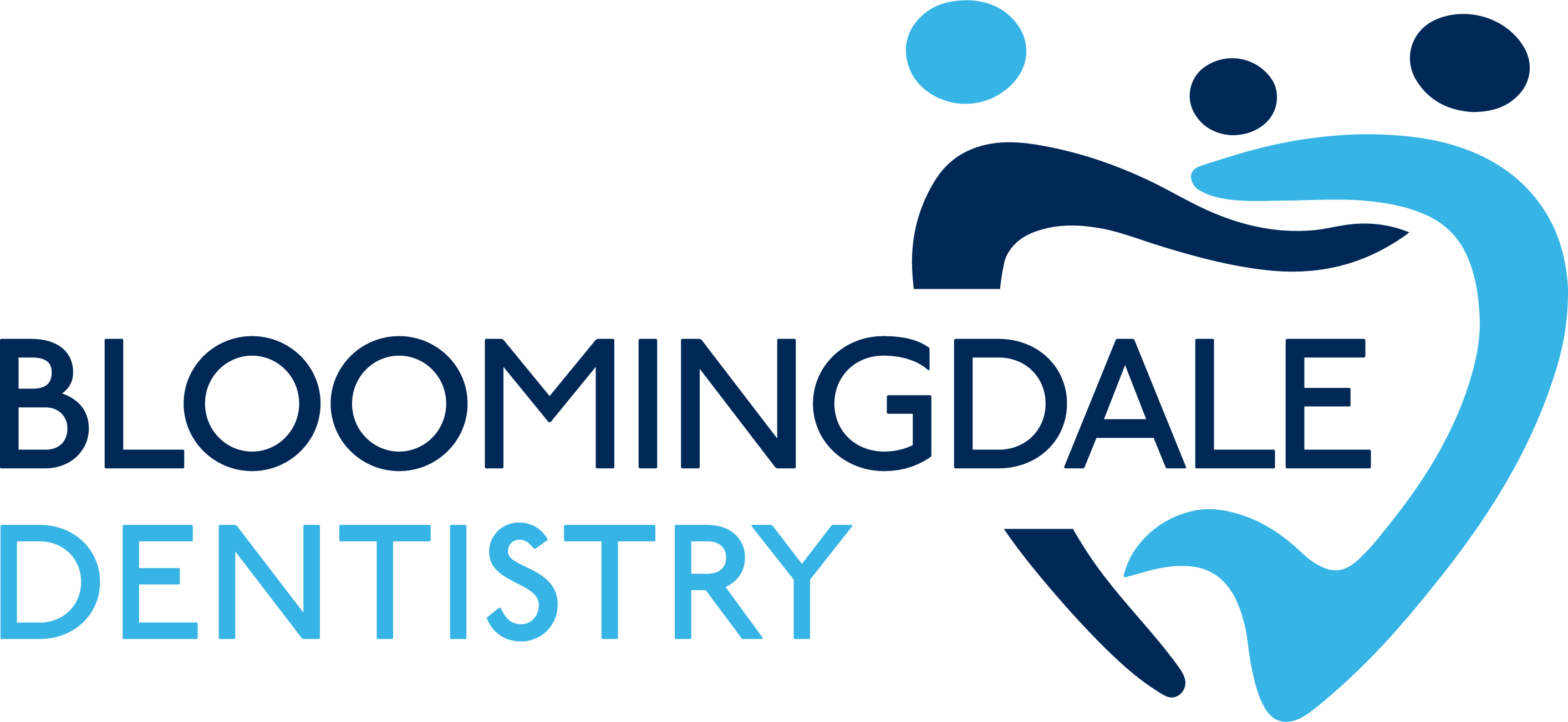
15 Oct Brushing Your Teeth: Why Timing Matters
Chances are, you’ve had that moment: you’re sitting at your desk at work or school and have the realization that in the busy flurry of the morning…you forgot to brush your teeth. This unfortunate accident, if repeated enough, can do more than just leave you with bad breath and maybe some slightly fuzzy-feeling teeth. Turns out, brushing your teeth in the morning, as well as at night, is crucial to your dental health. Here, we’ll explore why it doesn’t just matter that your teeth get brushed occasionally or eventually—they should to be brushed twice a day, every day, morning and night. Doing so will help produce the healthiest, happiest smile possible.
The Basics
Before we can talk about timing, we need to ask what we should be doing in the first place. The American Dental Association recommends brushing your teeth twice a day for at least two minutes every time. When you do so, it should be with a soft-bristled brush. Hard bristles can damage your gums. They recommend that you change out your toothbrush every 3-4 months (or sooner if you notice that the bristles are getting frayed).
Brushing doesn’t work if you just throw a dab of toothpaste on the brush, swipe it around, and spit it out. Brushing well takes time and care. Two minutes may seem like a long time to stand there, but it’s worth it if you want to take care of those pearly whites! When it comes to brushing technique, the ADA recommends that you brush with short strokes (the length of each tooth) at a 45-degree angle. Make sure you get to even those hard-to-reach crevices where bacteria gather.
While brushing your teeth is nearly always a good thing, it’s most optimal to do it just before bed and right after waking up.
Just Before Bed
Most likely, you were taught as a child to brush your teeth upon first waking and upon going to sleep anyway. That’s the first reason that brushing your teeth before bed is a good practice to keep: it takes advantage of habit. When brushing your teeth is simply a part of your nighttime ritual, there’s less of a chance that it will get accidentally skipped or forgotten.
Nightly brushing also clears out the debris of the day. As you eat and drink, remnants of food tend to cling to your teeth. Traces of sugar or acid eat away at your enamel, causing cavities to develop. That’s where nighttime brushing comes in: instead of taking down a big bowl of Rocky Road ice cream and then letting that sugar sit on your teeth all night, brushing before bed takes away (as much as it can) that sticky plaque.
Similarly, brushing before bed helps to prevent overnight bacteria growth caused by reduced saliva. When you sleep, your body produces less saliva than it does during the day. This is normal and good—the only problem is that saliva rinses away bacteria that would otherwise cling to your teeth and cause cavities. If you don’t brush the bacteria away before bed, then you allow that bacteria to feast on your enamel overnight.
After Waking Up
Like brushing before bed, brushing your teeth right after you wake up has the advantage of being easily integrated into a routine. If it’s part of your morning routine, then hopefully, you’ll have very few times where you end up at work avoiding standing too close to your colleagues because you forgot to brush your teeth.
This brings up one of the most significant reasons why we should brush our teeth in the morning: the removal of morning breath. Morning breath is normal and natural, but thankfully, we have teeth-brushing to rid ourselves of it.
Some wonder if they should brush their teeth before or after they eat breakfast; evidence suggests that doing it before breakfast is healthier for your teeth. This will scrub away built-up plaque and provide your teeth with extra protection against the acids it will encounter in the food you eat. The other advantage is that brushing your teeth stimulates saliva production. As we’ve already discussed, saliva is crucial to your dental health. The sooner you get your saliva flowing, the better.
If you prefer to brush your teeth after breakfast, it’s important to wait at least 30 minutes to brush after eating or drinking something acidic. Otherwise, you could damage your enamel further. Coffee, juice, and even toast are all items that would require you to wait at least 30 minutes after consuming to brush your teeth.
Healthy Habits
In the end, the most important thing is that your teeth get brushed. So if that has to happen midmorning or afternoon or in the evening, so be it. But brushing right after you wake up and just before bed come with certain advantages. For example, both carry the force of habit. Brushing at night also removes the debris of the day and prevents overnight bacteria growth. Brushing in the morning stimulates saliva production, provides a barrier against acid, and eliminates morning breath. When done properly and consistently, brushing may be the single most important thing you can do for your dental health.
If you have questions about when or how to brush, ask your hygienist for tips and a demonstration during your next visit or watch the video below.

About Our Team
Our team at Bloomingdale Dentistry has over 40 years of experience in the field of dentistry. We have a reputation of excellence in patient treatment and care.
To learn more about our team, visit our team page.
